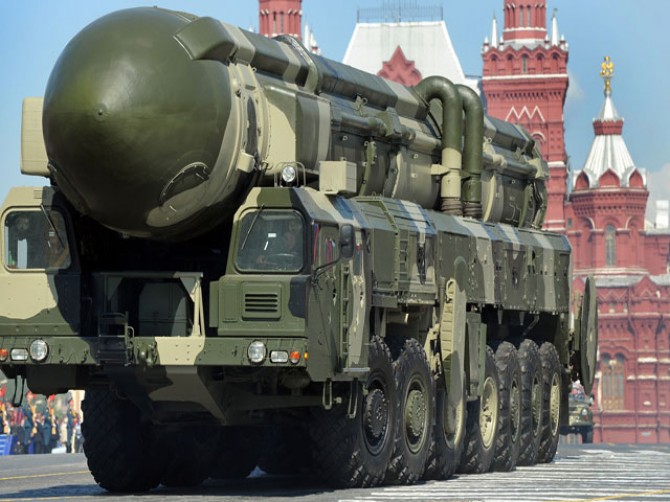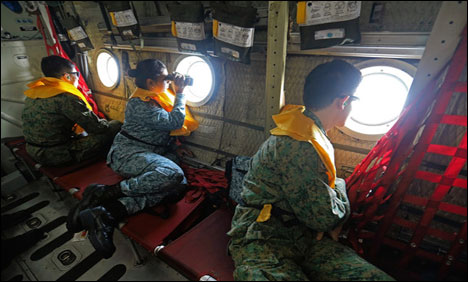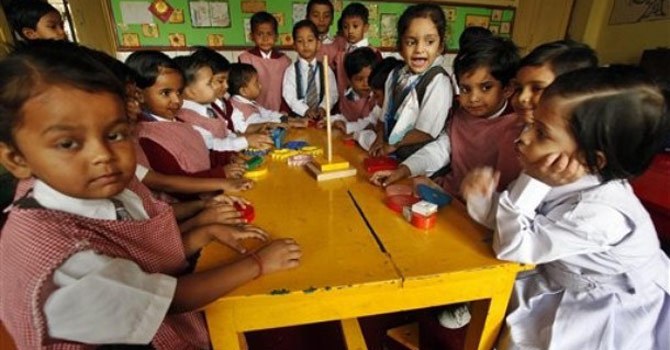- Web
- Humsa
- Videos
- Forum
- Q2A



In 2009, US President Barack Obama pledged to seek a world without nuclear weapons. But, while he delivered on his promise to negotiate a New Strategic Arms Reduction Treaty with Russia a year later, progress has since stalled.
To break the deadlock, the current bilateral framework for negotiation, which has remained largely unchanged since the Cold War, must be transformed into a trilateral framework that includes China.To be sure, such a move would significantly complicate negotiations. After all, while decades of bilateral dialogue have given the United States and Russia a good sense of each other’s strategic perspectives - including the issues on which they disagree. But trilateral dialogues, catalysed by skilful US diplomacy, could also serve as an opportunity to manage the countries’ strategic relations, which currently are characterised by contradictions and mistrust.
Russia seeks China’s support in opposing American missile-defence systems, and calls for the involvement of all nuclear states in future strategic arms-control talks, but then cites concerns about China’s military modernisation to justify its refusal to negotiate with Nato on tactical nuclear-weapon reduction. China, which has never adopted legally binding limits on its nuclear weapons or strategic nuclear-delivery vehicles, rejects Russia’s call to join negotiations - a stance that the US supports until the Russian and US nuclear arsenals move closer in size to those of China.
At the same time, US officials deny that their country’s missile-defence programmes are directed against Russia or China, but refuse to offer a legally binding guarantee. And the US Department of Defence is developing a robust programme of long-range conventional strike weapons, which China and Russia cite to justify their efforts to strengthen their offensive nuclear forces.
Although multilateral cooperation on nuclear issues has been effective in some cases, such as in ratifying the Nuclear Nonproliferation Treaty, it has been inadequate in others, such as in easing tensions with Iran and North Korea. In fact, even when China, Russia, and the US share the same agenda, their differing diplomatic tactics often undermine their ability to achieve their objectives.
For example, the three countries’ policies are inadvertently contributing to proliferation pressures in Asia and Europe. US pledges to defend Japan against a nuclear attack from China or North Korea have played a decisive role in dissuading the Japanese from seeking their own nuclear weapons. Given this, a Chinese nuclear surge - even one that did not lead to US-China parity - could undermine the credibility of American deterrence commitments, possibly motivating Japan to launch its own nuclear programme.
Similarly, some of Nato’s newer members, many of which are former Soviet-bloc states, are anxious about the prospect of Russian rearmament. As a result, they oppose efforts to reduce the number of American nuclear weapons in Europe, part of Nato’s “nuclear sharing” policy.
Perhaps the biggest obstacle to initiating a trilateral dialogue is Chinese resistance to formal nuclear arms-control agreements, which is rooted in the memory of Cold War-era nonproliferation initiatives aimed partly at preventing China from developing its own nuclear deterrent. Since then, Chinese officials have insisted that they do not belong in US-Russian strategic-arms talks, because the two countries’ nuclear arsenals dwarf theirs.
But, as the US and Russia reduce their nuclear stockpiles, this excuse is becoming less valid, and China’s exclusion from negotiations is becoming an increasingly significant hindrance to disarmament. Several recent developments could help to minimise obstacles to trilateral cooperation.
China’s new leadership is further removed from Maoist-era reflexive opposition to nuclear negotiations; Russian leaders’ confidence in their economic and military resurgence is waning; and both countries are increasingly frustrated by the lack of progress in nuclear talks with North Korea and Iran. Meanwhile, faced with a large federal budget deficit, many American voters would welcome reduced spending on nuclear weapons.
The US should capitalise on this situation, leveraging Russian concerns and interests to induce China to join strategic arms-control efforts. China might be willing to make a unilateral, but enforceable, commitment not to augment its nuclear arsenal, if Russia and the US reduce theirs further. Determining the circumstances that might induce such restraint - and the conditions that would be needed to sustain it - is crucial to reinvigorating nuclear disarmament efforts.
 More than 80 people were killed when twin explosions rocked Aleppo University on Tuesday, the governor of Syria’s second city, Mohammed Wahid Akkad, and a source at the university hospital said.
“So far there are 82 fatalities and more than 160 wounded in a terrorist attack that targeted students on their first day of exams at the Univer..... Read more
More than 80 people were killed when twin explosions rocked Aleppo University on Tuesday, the governor of Syria’s second city, Mohammed Wahid Akkad, and a source at the university hospital said.
“So far there are 82 fatalities and more than 160 wounded in a terrorist attack that targeted students on their first day of exams at the Univer..... Read more
 The so-far fruitless search for Malaysia Airlines Flight 370, which disappeared early Saturday with 239 people aboard, is unprecedented because of the plane's size and because the widebody Boeing 777 had been in radio and satellite contact with multiple locations on the ground. It was also flying when it lost contact over the sea in one of the world's most d..... Read more
The so-far fruitless search for Malaysia Airlines Flight 370, which disappeared early Saturday with 239 people aboard, is unprecedented because of the plane's size and because the widebody Boeing 777 had been in radio and satellite contact with multiple locations on the ground. It was also flying when it lost contact over the sea in one of the world's most d..... Read more
.jpg) Prime Minister of Pakistani-administered Kashmir Chaudhry Abdul Majeed on Wednesday dismissed the public advisory, telling residents to prepare for nuclear war by building basement shelters, as a pressure tactic.
“India cannot impose even conventional war on Pakistan, and if it does, each and every child of Kashmir will fight shoulder-to-shoul..... Read more
Prime Minister of Pakistani-administered Kashmir Chaudhry Abdul Majeed on Wednesday dismissed the public advisory, telling residents to prepare for nuclear war by building basement shelters, as a pressure tactic.
“India cannot impose even conventional war on Pakistan, and if it does, each and every child of Kashmir will fight shoulder-to-shoul..... Read more












 Clean Chit (Faisal Raza Abidi ...
Clean Chit (Faisal Raza Abidi ...  Akhir Kiyon - 16th December 2...
Akhir Kiyon - 16th December 2...  To The Point - 16th December ...
To The Point - 16th December ...  Capital Talk â
Capital Talk â  Kal Tak - 16th December 2013
Kal Tak - 16th December 2013  Bay Laag - 16th December 2013
Bay Laag - 16th December 2013  Kharra Sach - 16th December 2...
Kharra Sach - 16th December 2...  Awaam - 15th December 2013
Awaam - 15th December 2013 





 Gold Miner
Gold Miner  Superbike GP
Superbike GP  Whipsaw Fighter
Whipsaw Fighter  PacMan
PacMan 


